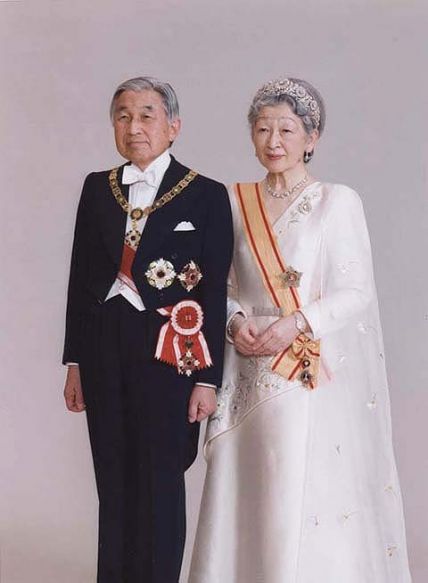|
|
Other
Japan Celebrates the 77th Birthday of Emperor Akihito
Thursday, December 23, 2010

PanOrient News- Tokyo- Japan celebrated today the 77th birthday of Emperor Akihito, the "symbol of the state and the unity of the people," under the country's present constitution.
Emperor Akihito acceded to the throne as the 125th Emperor of Japan, following the death of his father Emperor Hirohito, posthumously known as Emperor Showa. The Ceremony of Enthronement was held at the Imperial Palace on 12 November 1990.
As stated in the Constitution of Japan, the Emperor is "the symbol of the State and of the unity of the people" and derives his position from "the will of the people with whom resides sovereign power."
Emperor Akihito was born in Tokyo on 23 December 1933, as the first son of Emperor Showa and Empress Kojun. He has four elder sisters, one younger brother and one younger sister.
According to the Japanese Imperial Household Agency, Emperor Akihito received his elementary and secondary education at Gakushuin, the then Imperial Household Ministry school which later became a private institution. While he was in the elementary school, he had to move temporarily out of Tokyo with his classmates because of the war. He was still in the mountains of Nikko when the war came to an end in 1945.
In 1952, he entered Gakushuin University's Faculty of Political Science and Economics. In the same year, his Coming-of-Age Ceremony and his Investiture as Crown Prince were held. He thus began to carry out official duties in his capacity as Crown Prince. The next year, he made his first overseas journey to attend the coronation of Queen Elizabeth II of the United Kingdom, and travelled extensively in North America and Europe. He completed his university education as a special student in 1956.
In addition to his formal education, Emperor Akihito received special tutoring from authorities in various areas of learning, such as Japanese History and Constitutional Law.
On 10 April 1959, Crown Prince Akihito married Miss Michiko Shoda, daughter of a distinguished businessman.
The Emperor performs those acts in matters of state which are provided for in the Constitution, such as appointing the Prime Minister and the Chief Justice of the Supreme Court, attesting the appointment of Ministers of State and some other high officials, convoking the National Diet, promulgating laws and treaties, awarding honours, attesting the credentials of ambassadors as well as receiving foreign ambassadors. In these matters of state, he acts on the advice and approval of the Cabinet.
Since the Enthronement in 1989, the Emperor, together with the Empress, has been discharging a wide variety of official duties in relation to his position as the symbol of the State and of the unity of the Japanese people.
(Photo: Imperial Household Agency)
PanOrient News
© PanOrient News All Rights Reserved.
|
|

